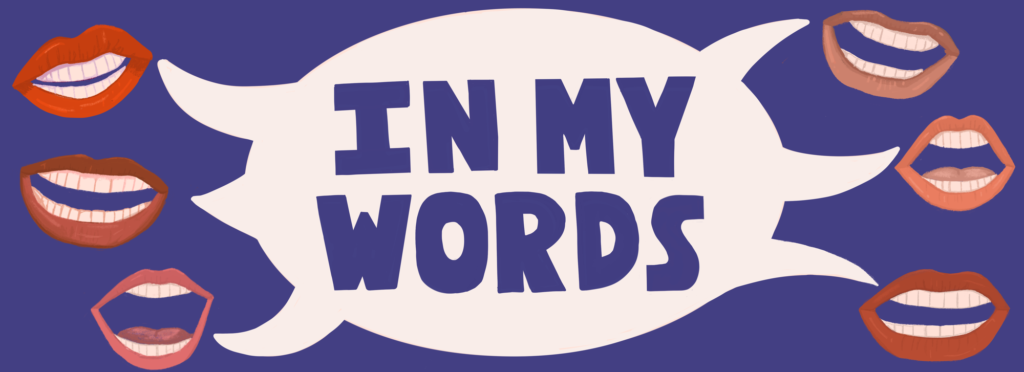In My Words: Overcoming imposter syndrome when people attribute my successes to my race, gender

Daily Bruin Outreach Director Marilyn Chavez-Martinez explores the ways people have tied her success with her racial identity – and how she’s risen above and defined her accomplishments in terms of her work ethic. (Courtesy of Marilyn Chavez-Martinez)

By Marilyn Chavez-Martinez
Nov. 17, 2020 6:55 p.m.
The COVID-19 pandemic and national demonstrations against the deaths of Black Americans have shed light on the brutal manifestations of systemic racism. Across humanity’s collective history, stories have elevated marginalized voices and breathed life into once broken structures. Through “In My Words,” community members and Daily Bruin staffers share their own experiences with racial identities and perspectives on the current state of race at UCLA and across the nation. If you have a story or an opinion you would like to share, complete this interest form.

I remember talking to a friend my senior year of high school. He had received a score on the PSAT that put him among the highest scoring Hispanic students who had taken the test. He even received recognition for this accomplishment.
Except he wasn’t Hispanic.
He went on to explain his logic: Had he marked his actual race of Asian American, he wouldn’t have received the same honor. He also argued that it was harder for Asian Americans to be judged fairly against each other, implying that it was easier for Hispanic students or other historically underrepresented groups to receive awards or get into prestigious universities.
At that point in my high school career, I was among the top in my class, editor in chief of my yearbook and a junior varsity athlete who occasionally slipped into varsity. I was also recently accepted to UCLA, one of only a few students in my class who were accepted that year.
I guess he then realized his words implied I had not earned my place at UCLA, because after all, things “come easier” to Hispanic students. So he apologized, and said I surely would have gotten into UCLA regardless of my race. And I insisted it was fine, because at the time, it was.
Years later, this exchange hasn’t left me, mostly because it wasn’t the first time I had heard it.
Growing up, I had three sisters who had also graduated top in their class and had all gone to college. I was very lucky to follow in their footsteps. I always received good grades, participated in athletics, volunteered during the summer and interned at a newsroom my junior year of high school.
Nevertheless, when I would talk about my future goals, it was common to hear my friends or family say, “you’re brown and a girl, so of course they’ll take you.” As if that’s the only reason I would get anywhere. I began to internalize a scary notion that I would never be valued for my work alone.
When I talk about my sisters’ accomplishments – they’re all in STEM fields and graduated with degrees in engineering, computer engineering and neuroscience – people would respond by noting the increasing push for diversity in STEM. As if their accomplishments were also not because of their work and dedication. It was because somebody in a position of power decided they were worthy of a chance – because they were brown women.
I wonder if that’s what my peers think of me now.
To people at UCLA, I am not at the top of my class. I am no longer in athletics, although I do spend a substantial amount of hours in my extracurricular activities. But I am not the hotshot I was in high school. Do my peers wonder if I received my place here because I am brown and a woman?
I guess I won’t ever really know, but it’s hard to imagine people would suddenly lose that assumption I heard so many times growing up.
Maybe it’s because I’ve heard these words every time I applied for something new or accomplished anything, but that assumption gave way to imposter syndrome. It made me constantly wonder if I deserved my accomplishments or if they were handed to me. I would stretch myself thin to prove to my peers that I deserved my place at an institution.
I am gradually growing out of overworking myself, however. Learning how to pace oneself and value one’s work for what it is takes time, and I’m starting to take that time. I hope other brown people who have had their work diminished by naysayers start taking that time as well.
Brown, Black and Indigenous students shouldn’t have to question their worths or places at an institution, especially not because of someone else’s words. I promise that those words hurt more than you think.


